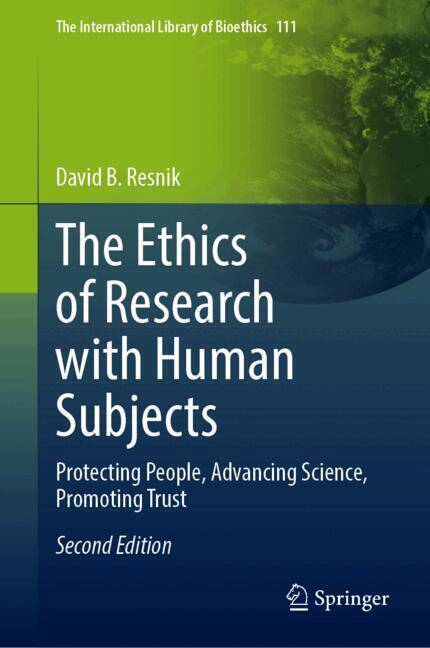
- Afhalen na 1 uur in een winkel met voorraad
- Gratis thuislevering in België vanaf € 30
- Ruim aanbod met 7 miljoen producten
- Afhalen na 1 uur in een winkel met voorraad
- Gratis thuislevering in België vanaf € 30
- Ruim aanbod met 7 miljoen producten
Zoeken
The Ethics of Research with Human Subjects
Protecting People, Advancing Science, Promoting Trust
David B Resnik
€ 147,95
+ 295 punten
Uitvoering
Omschrijving
In The Ethics of Research with Human Subjects, David B. Resnik, PhD/JD, develops and defends an approach to thinking about ethical and policy dilemmas in research with human subjects based on the notion of trust. The book explains why trust is important not only between investigators and research subjects but also between and among other stakeholders involved in the research enterprise, including research staff, sponsors, institutions, communities, oversight committees, government agencies, and the public. Dr. Resnik argues that trust should be viewed as a distinct ethical principle for research with human subjects that complements other principles, such as respect for human dignity, beneficence, non-maleficence, and justice. The book applies the principle of trust to numerous issues, including informed consent, confidentiality/privacy, risk minimization, risk/benefit assessment, payments for participation, protection of vulnerable subjects, experimental design, research integrity, and research oversight. The book also includes discussions of the history of research involving human subjects, moral theories and principles, contemporary cases, and proposed regulatory reforms. This second edition of The Ethics of Research with Human Subjects expands upon and clarifies arguments and ideas discussed in the first edition and includes new material on emerging issues in human research ethics, including community-based research, citizen science research, challenge studies (including COVID-19 experiments), public health research, genomics research, social and behavioral research, xenotransplantation experiments, alternative study designs, and research with people with compromised decisional capacity, employees, and students. The book is of interest to undergraduate and graduate students who are studying ethical and policy issues related to research with human subjects, as well as scientists and scholars who are interested learning more about the issues and thinking about what it means to promote integrity and trust in research with human subjects.
Specificaties
Betrokkenen
- Auteur(s):
- Uitgeverij:
Inhoud
- Aantal bladzijden:
- 397
- Taal:
- Engels
- Reeks:
- Reeksnummer:
- nr. 111
Eigenschappen
- Productcode (EAN):
- 9783031827563
- Verschijningsdatum:
- 28/02/2025
- Uitvoering:
- Hardcover
- Formaat:
- Genaaid
- Afmetingen:
- 156 mm x 234 mm
- Gewicht:
- 752 g

Alleen bij Standaard Boekhandel
+ 295 punten op je klantenkaart van Standaard Boekhandel
Beoordelingen
We publiceren alleen reviews die voldoen aan de voorwaarden voor reviews. Bekijk onze voorwaarden voor reviews.











